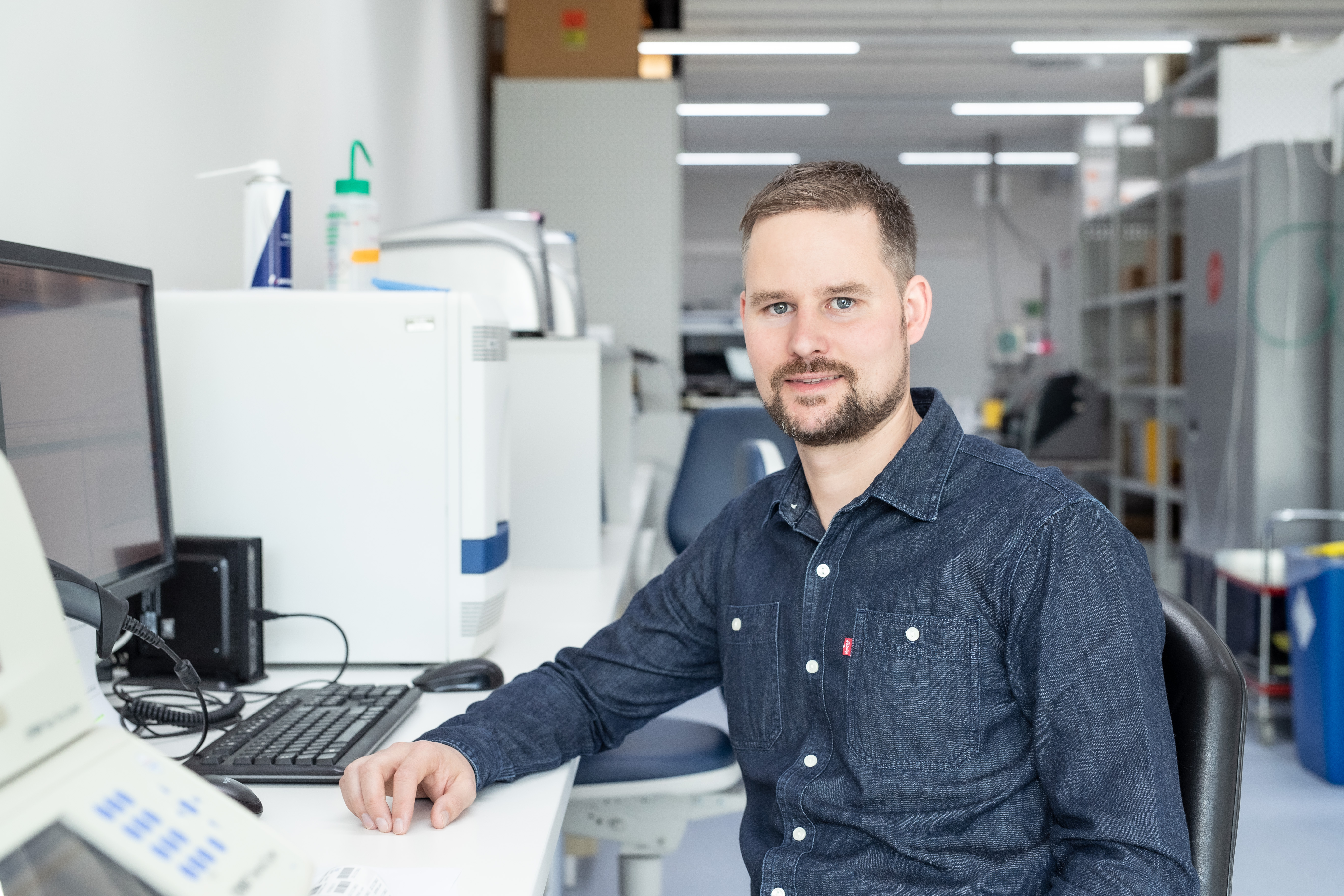The Center for Laboratory Medicine (ZLM) is a modern, innovative, high-performance ISO/IEC 17025 accredited laboratory with 230 employees and is one of the leading medical diagnostic laboratories in Switzerland. It guarantees comprehensive laboratory diagnostics, provides basic laboratory medical care in the canton, special analysis for the hospitals, the St.Gallen psychiatric department and the veterinary authorities and provides laboratory medical services for other medical and research institutions in Switzerland and abroad.
In addition to the classic areas such as clinical chemistry, haematology and immunology, as well as human medical microbiology with bacteriology, molecular biology and virology, the ZLM also runs a molecular genetics laboratory. With the approval of the Federal Office of Public Health (FOPH), a wide range of different genetic diseases are examined here.
Genetic tests
Genetic tests aim to detect or rule out a genetic disease or predisposition to a disease by analyzing the genetic material. Such tests are voluntary and require formal consent, as they provide very personal results. "We recommend genetic counseling in advance to clarify the possibilities, consequences and limitations," says Yannick Gerth, MSc, Head of Genetics at ZLM St.Gallen. "Genetic testing can provide important information for existing medical problems. Another application is the examination of healthy individuals to confirm or rule out a familial predisposition (carrier) for a genetic disease". In addition to hereditary changes, mutations acquired in the course of life are also examined. Such mutations, known as somatic variants, can be the cause of tumors or malignant diseases of the blood system (hematological neoplasms) such as leukemia.

Yannick Gerth is Head of Genetics at the ZLM St.Gallen.

Working at the ZLM
Dedicated, qualified and specialized employees carry out routine and special analyses in clinical chemistry, haematology, immunology, microbiology, genetics and veterinary diagnostics on a daily basis to ensure the best possible care for patients. They work according to the latest laboratory analytical methods, automated processes, state-of-the-art science and technology, supported by fully automated laboratory automation, high-throughput automation and even artificial intelligence. Professionalism is a top priority and is supported by ongoing training and further education. The ZLM is certified as a training center for biomedical analysts, specialists in laboratory medicine FAMH, haematology specialists and veterinarians.
Finding answers in the blood
Whether for preventive examinations, clarifications in the case of infections or inflammations, certain diseases such as metabolic disorders, blood sugar or numerous diagnostic options for hematologic cancers - answers can be found in the blood.
In genetic diagnostics, the ZLM specializes in particularin haematological neoplasms (leukaemias, lymphoma, bone marrow diseases), haemostasis and thrombophilia investigations (investigations relating to blood clotting (so-called haemophilia) and thrombosis formation) and endocrine metabolic diseases (cholesterol metabolism, mineral metabolism or hereditary diabetes).
The spectrum has been expanded to include genetic tumor predisposition syndromes. These are genetically determined clinical pictures with an increased risk of developing tumors (breast and ovarian cancer or hereditary colon cancer) as well as exome diagnostics (Whole Exome Sequencing, WES). "This revolutionary form of diagnostics has recently been established at the ZLM," says Yannick Gerth. The technique allows all protein-coding regions of genes (approx. 20,000) in a human genome to be sequenced. Around 85% of known disease-causing mutations, some of which can lead to serious illnesses, are found in this region. The identification of the disease-causing defects enables patients to receive a clear diagnosis, a prognosis if necessary and an assessment of the risk of recurrence in offspring. The ZLM uses Sanger sequencing (a proven method of DNA sequencing) as a confirmation method for next-generation sequencing (NGS). Sanger sequencing can also be used to quickly and cost-effectively search for a known genetic defect in family members.
A further step with potential - liquid biopsy
In a liquid biopsy, various biomarkers are examined from a sample taken using a non-invasive method. A common application is the detection and identification of variants of genes that can be affected by different types of tumors. Even if there is little tissue sample material, it has a low tumor cell content or the tumor is difficult to reach, the response to therapy, tumor growth or the recurrence of a tumor can be reliably detected. "This is a complex topic. However, the technology has great potential in the monitoring of cancer therapy, which is why we are working on being able to offer liquid biopsy in routine practice soon," says Yannick Gerth confidently.
"The ZLM has been providing location-independent genetic counseling for 2.5 years."
Dr. Poupak Javaher, specialist in human genetics at the Center for Laboratory Medicine
Genetic counseling
Genetic counseling rounds off the services offered by the ZLM. Genetic consultations take place before and after genetic diagnostics. Questions relating to possible genetic diseases are answered and possible treatment, prevention and planning concepts are drawn up. "The need to convey complex results and information in an understandable way to patients and non-genetically trained specialists, including family tree analyses, is difficult to manage in routine doctor-patient consultations," says Dr. Poupak Javaher, specialist in human genetics at the Center for Laboratory Medicine. "The ZLM recognized this 2.5 years ago and set up a genetic consultation service that can be carried out anywhere."

Focal points of the of consultation are pediatric genetics, oncogeneticsneurogenetics, reproductive genetics and hematological genetics including hemato-oncogenetics. A further step towards the future is it, within the framework of genetic diagnosticsthe concept of an AI-basedn tools for online genetic counseling "KI-OBG" implement. "The advantages of location-independent genetic counseling" says Dr. Javaher, are to make better use of scarce resources in order to meet the increasing demand due to the expanded diagnostic possibilities in medicine and to further improve the quantity and quality of genetic counseling".genetic counseling".
This article was written in collaboration with the Center for Laboratory Medicine.




